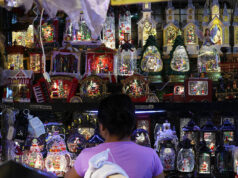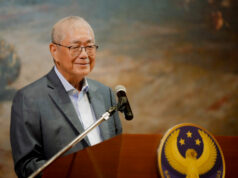‘Hot money’ flows out for 3rd straight month in May
MORE foreign capital went out of the Philippines in May for the third straight month, amid the escalating trade tensions between the United States and China, the Bangko Sentral ng Pilipinas (BSP) reported on Friday.
Foreign portfolio investments — also known as hot money because of the ease by which these funds enter and leave the economy — saw a net outflow of $749.84 million in May. This was significantly more than the $206.25 million net outflow in May 2018, and the $298.83 million that left the country in April 2019.
This brought the five-month tally to a $685.27 million net outflow, reversing the $813.81 million in net inbound capital logged during the same period in 2018.
The BSP forecasts $4 billion in net inflows for 2019.
Gross outflows stood at $1.988 billion in May, higher than the $1.418 billion seen in the same month last year and the $1.289 billion logged in April.
This offset the $1.238 billion in foreign capital that entered the country in May, a tad higher than the $1.212 billion in gross inflows seen a year ago and the $989.96 million the prior month.
Broken down, all investment instruments posted a net outflow, particularly the listed securities at the Philippine Stock Exchange ($508 million), peso government securities ($241 million) and other local currency debt papers and other portfolio instruments (each at less than $1 million).
The central bank attributed the 54.2% month-on-month increase in gross outflows in May to the “renewed trade tensions between the US and China.”
Trade tensions between the world’s two largest economies simmered again after Beijing and Washington imposed tit-for-tat levies on each other’s imports.
The US increased tariffs on $200 billion worth of Chinese goods to 25% from the previous 10% on May 10. In response, China slapped American imports higher levies of up to 25% on certain goods effective June 1.
President Donald J. Trump said Tuesday he is set to meet his Chinese counterpart Xi Jinping next week during the G20 Summit next week in Japan to discuss trade issues.
The BSP said the US continued to be the main destination of fund outflows, receiving 81.5% of total remittances.
On the other hand, the central bank said gross inflows grew 25% month-on-month as investors reacted on the lower inflation for April 2019 amid the midterm polls, as well as the BSP’s move to cut the reserve requirement ratio of big banks.
Roughly 81.5% of investments registered in May were in PSE-listed debt papers, particularly in holding firms and companies pertaining to property, banking, food, beverage, tobacco and transportation services.
By country, the top five investors last month were the United Kingdom, the US, Malaysia, Singapore and Luxembourg, accounting for 76.7% of the total.
Ruben Carlo O. Asuncion, UnionBank of the Philippines, Inc. chief economist, said there have been “not so good news” about the “protracted” trade conflict between Beijing and Washington.
“Emerging markets like the Philippines are usually very vulnerable to volatility brought by unfavorable sentiments mentioned,” Mr. Asuncion said in a text message. — K.A.N.Vidal



